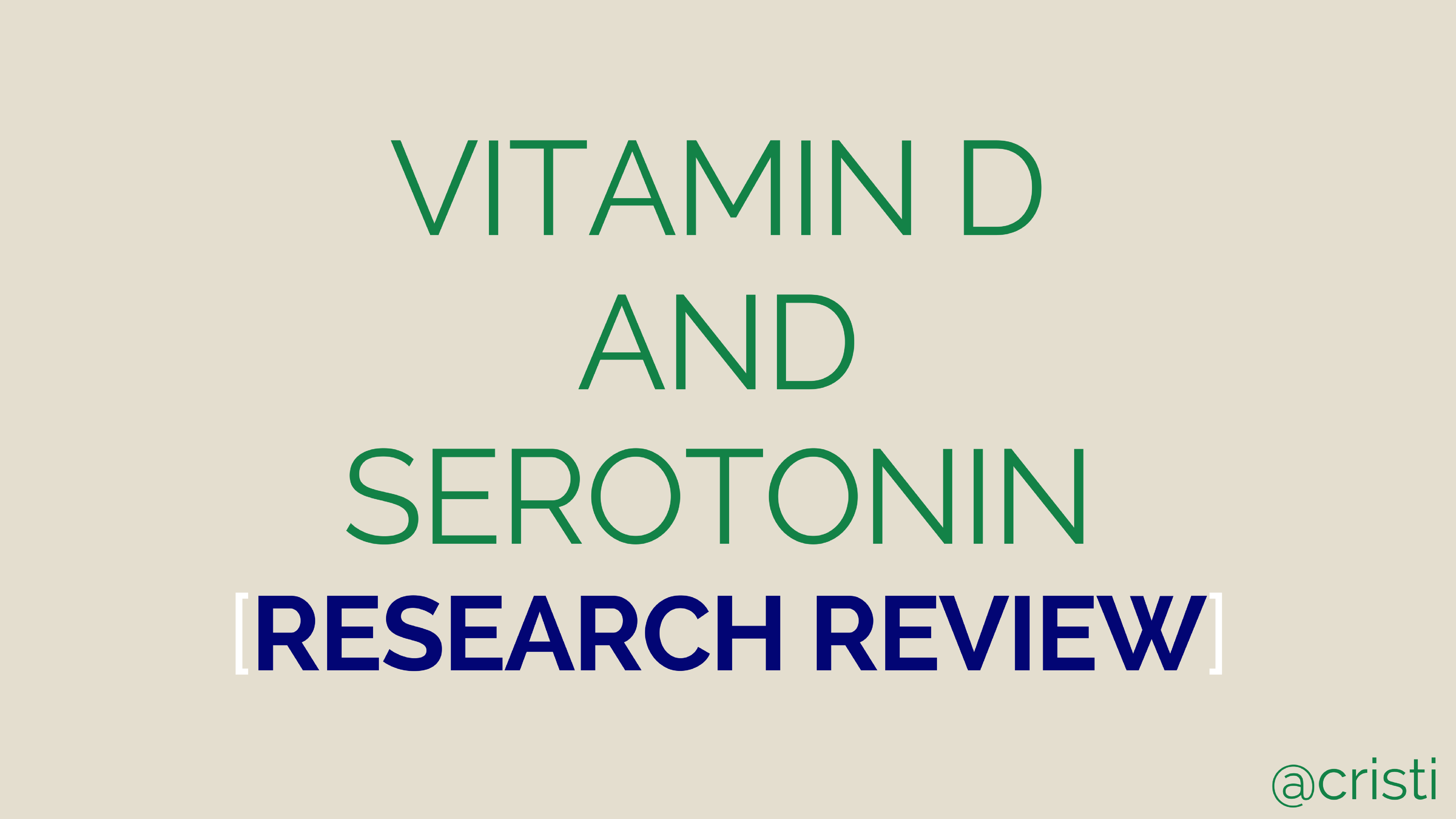
Patrick and Ames (2014) wrote a two part detailed review on vitamin D and serotonin regulation. The first part deals with implications in autism, while the second part focuses on the role of the omega-3 fatty acids in this whole picture.
Here are some of the main points of the first paper:
- vitamin D activates tryptophan hydroxylase 2 (TPH2) in the brain - to synthesize serotonin
- autism is often characterized by low central serotonin levels
- the higher prevalence of autism may only in a small part be due to genetic variants
- the role of both serotonin and vitamin D in autism
- a mechanism linking these two to autism; a lot of the progress made regarding this topic has been, in my view, in part due to the recent discovery of vitamin D receptors in many tissues and cells throughout the body; until then, it was thought to exist only in a few body locations.
- maternal autoimmunity, vitamin D, and autism
- and a few others. [source]
While interventions could be implemented via numerous targets, the authors propose the following:
"Vitamin D and tryptophan supplementation may be a simple method of increasing brain serotonin without negative side effects. There are other common approaches to boosting concentrations of serotonin in the brain such as supplementation with 5-hydroxytryptophan (5-HTP), which crosses the blood-brain barrier (192). However, 5-HTP may be immediately converted into serotonin in the GI tract, which lowers the bioavailability of 5-HTP to be transported into the brain.
Additionally, the conversion of 5-HTP into serotonin in the GI tract is known to cause inflammation, which has been associated with 5-HTP supplementation (169, 192, 193). Accordingly, vitamin D and tryptophan supplementation may be a better alternative to 5-HTP to boost brain serotonin. This is because, in addition to promoting serotonin synthesis in the brain, vitamin D would also transcriptionally suppress TPH1, which produces serotonin in the gut, thus increasing tryptophan bioavailability and reducing GI irritation, and would also provide the benefits of increased oxytocin and the other vitamin D hormone-controlled genes." [source]
I would say that, depending on severity, this type of intervention would be implemented alone or in combination/conjunction with other therapies (including drugs). Nevertheless, every case should be assessed individually to determine the most appropriate course of action.
I'd highly recommend you read the entire paper as it goes into many more aspects and 'technical' details of vitamin D, serotonin, and ASD than I could summarize here. It's open access:
Part 1: Relevance for Autism]
To stay in touch with me, follow @cristi
Cristi Vlad, Self-Experimenter and Author
wow
Downvoting a post can decrease pending rewards and make it less visible. Common reasons:
Submit
good post @cristi
Downvoting a post can decrease pending rewards and make it less visible. Common reasons:
Submit
Vit D is an important issue in Austism, and your point about the requirement for D3 in serotonin production is not to be ignored. But I don't believe it plays as a role as the paper suggests. Vagal macrophage transmission of bacteria into the brain appears to be a key component in Vitamin D receptor inactivation. until you reactivate the VDR or GC receptors the Vit D cannot do its job correctly.
Downvoting a post can decrease pending rewards and make it less visible. Common reasons:
Submit
good job,,,,,,,,,,
Downvoting a post can decrease pending rewards and make it less visible. Common reasons:
Submit
Great content!
Downvoting a post can decrease pending rewards and make it less visible. Common reasons:
Submit
prafect post for me thanks
Downvoting a post can decrease pending rewards and make it less visible. Common reasons:
Submit
Sir brilliant research u got in medical excellent
Downvoting a post can decrease pending rewards and make it less visible. Common reasons:
Submit
Thank you for the valuable information.
Downvoting a post can decrease pending rewards and make it less visible. Common reasons:
Submit